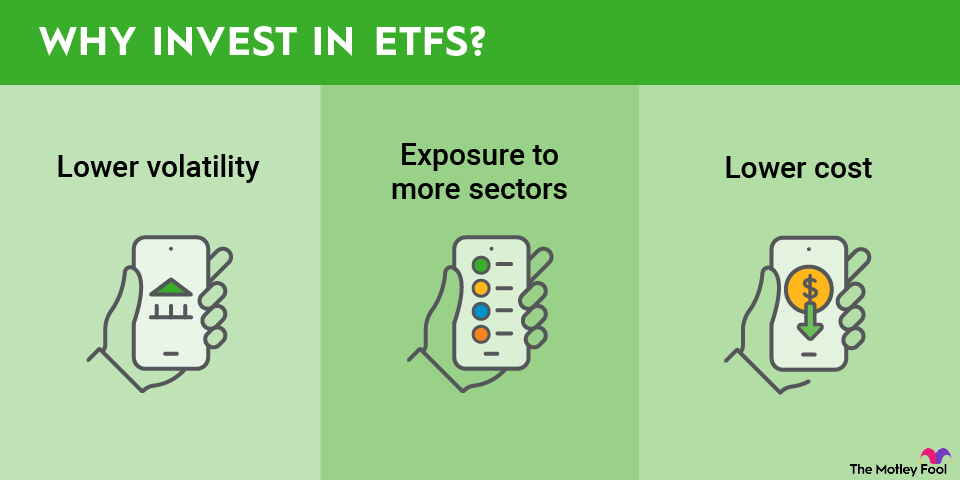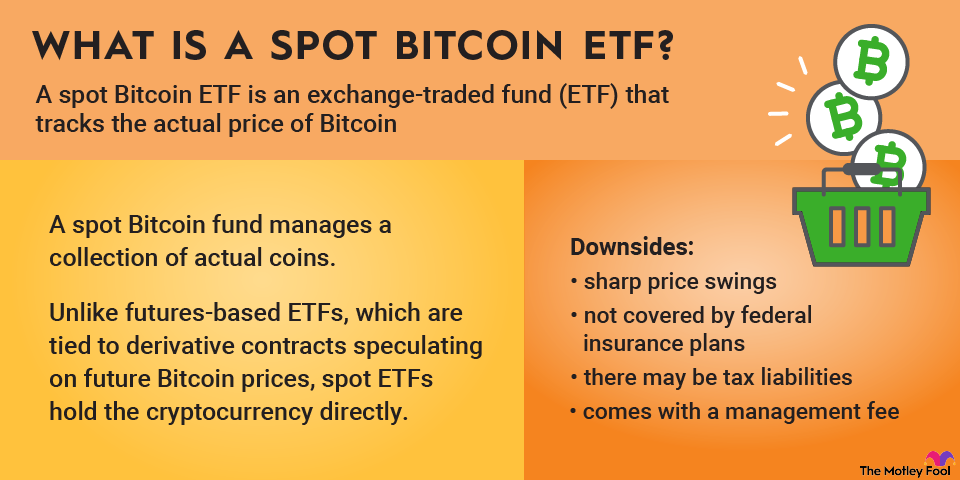If you want to simplify your investing approach and own the entire U.S. stock market in a single fund, the Vanguard Total Stock Market ETF (VTI -0.16%) is the exchange-traded fund (ETF) to consider.
Often described as owning the "entire haystack," the VTI ETF provides exposure to virtually every publicly traded company in the United States, making it one of the broadest and most diversified options available.

NYSEMKT: VTI
Key Data Points
Think of this stock market ETF as a baseline for measuring the performance of the U.S. stock market; it goes beyond the popular S&P 500 by including mid-cap and small-cap stocks, offering even greater coverage.
What's more, this ETF is highly affordable, with one of the lowest expense ratios in the industry. Over the long term, most stock pickers fail to outperform this fund, making it a strong candidate for a "set it and forget it" investment strategy.
Here's everything you need to know before investing in this top ETF.
Exchange-Traded Fund (ETF)
What is the Vanguard Total Stock Market ETF (VTI)?
The Vanguard Total Stock Market ETF (VTI) is a passive ETF that tracks the CRSP US Total Market Index, a broad benchmark designed to mirror the entire investable U.S. stock market.
This index covers more than 3,500 stocks across small-, mid-, and large-cap companies, weighted by market capitalization. This structure ensures that larger companies carry more weight in the ETF, while smaller companies are represented proportionally.
With exposure to both value and growth stocks and all 11 sectors of the economy, this Vanguard ETF provides investors with instant diversification across virtually every corner of the U.S. equity market.
Another standout feature is its low turnover, meaning fewer trades are required to maintain the portfolio’s alignment with the index. This reduces transaction costs and tax implications, making it a tax-efficient option for long-term investors.
How to buy Vanguard Total Stock Market ETF (VTI)
- Open your brokerage app: Log into your brokerage account where you handle your investments.
- Search for the ETF: Enter the ticker "VTI" or the ETF's full name into the search bar to bring up its trading page.
- Decide how many shares to buy: Consider your investment goals and how much of your portfolio you want to allocate to this ETF.
- Select order type: Choose between a market order to buy at the current price or a limit order to specify the maximum price you're willing to pay.
- Submit your order: Confirm the details and submit your buy order.
- Review your purchase: Check your portfolio to ensure your order was filled as expected and adjust your investment strategy accordingly.
Holdings of Vanguard Total Stock Market ETF (VTI)
This Vanguard fund has over 3,500 holdings, but as a market cap–weighted ETF, the top 10 are a collection of familiar blue chip companies:
- Nvidia (NVDA -0.36%)
- Microsoft (MSFT +0.08%)
- Apple (AAPL -0.22%)
- Amazon (AMZN +0.26%)
- Meta Platforms (NASDAQ META)
- Broadcom (AVGO +0.15%)
- Alphabet Class A (GOOGL +0.09%)
- Alphabet Class C (GOOG +0.05%)
- Tesla (TSLA -1.13%)
- Berkshire Hathaway Class B (BRK.B +0.53%)
In terms of sector composition, this ETF heavily overweights technology, followed by financials, consumer discretionary, healthcare, and communication services.
Should you invest in Vanguard Total Stock Market ETF (VTI)?
This ETF is best suited as a core portfolio holding, offering instant access to the entire U.S. stock market in a neutral way.
By investing in it, you're not making concentrated bets on any specific sector, size, or style, which makes it an ideal choice for those looking for broad diversification and simplicity.
However, if you're looking for more specialized exposure -- such as focusing solely on small-cap stocks, value stocks, or tech stocks -- this Vanguard ETF may be too broad for your needs. In those cases, a more targeted fund might be a better fit for your portfolio.
Does Vanguard Total Stock Market ETF (VTI) pay a Dividend?
This ETF pays a dividend on a quarterly basis. As of Aug. 31, 2025, it offered a 1.14% 30-day SEC yield.
However, this fund's focus is on broad market exposure rather than generating high income. If you're primarily seeking income, a dedicated dividend ETF might be a better fit for your portfolio.
What is Vanguard Total Stock Market ETF's (VTI) expense ratio?
This Vanguard ETF has an exceptionally low expense ratio of just 0.03%, meaning you'll pay only $3 annually for every $10,000 invested. This fee isn't charged upfront but is deducted from the fund's assets on the back end, slightly reducing the ETF's overall performance.
ETF Expense Ratio
Historical performance of Vanguard Total Stock Market ETF (VTI)
Here's a look at the fund's annualized total return (i.e., with dividends reinvested) over various trailing time periods.
Metric | 1-yr | 3-yr | 5-yr | 10-yr |
|---|---|---|---|---|
Net Asset Value (NAV) | 9.74% | 20.33% | 11.44% | 15.57% |
Market Price | 9.71% | 20.11% | 11.25% | 15.59% |
Related investing topics
The bottom line on Vanguard Total Stock Market ETF (VTI)
Few ETFs can rival this Vanguard ETF for its combination of low cost and broad U.S. market exposure, making it a perfect choice for hands-off investors looking for a straightforward, all-encompassing solution.
Even active investors and stock pickers can benefit by using this ETF as a core portfolio holding, ensuring they maintain a solid baseline of diversified U.S. market exposure.





















